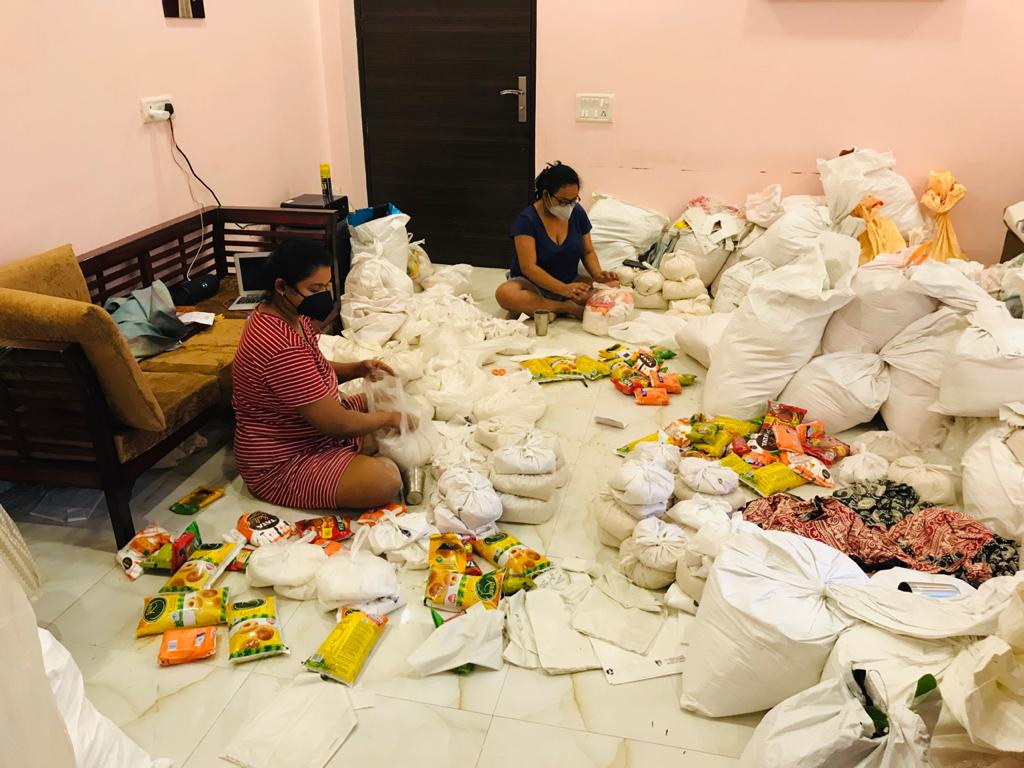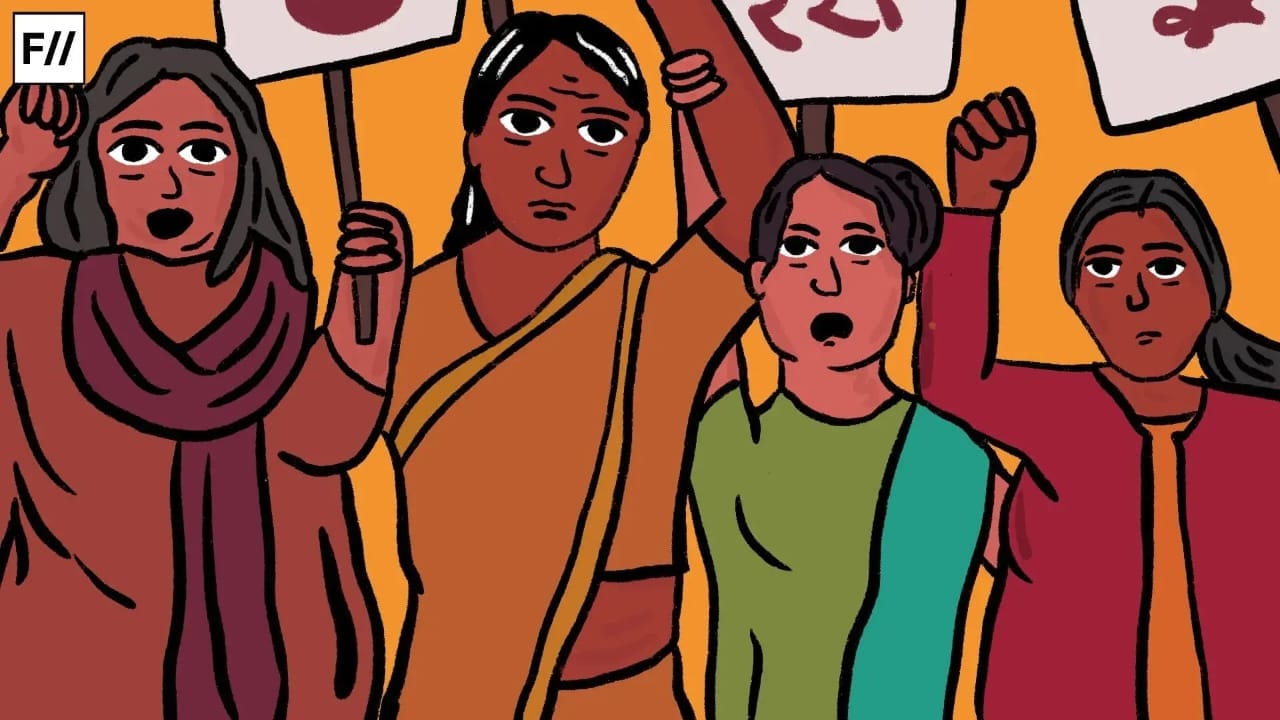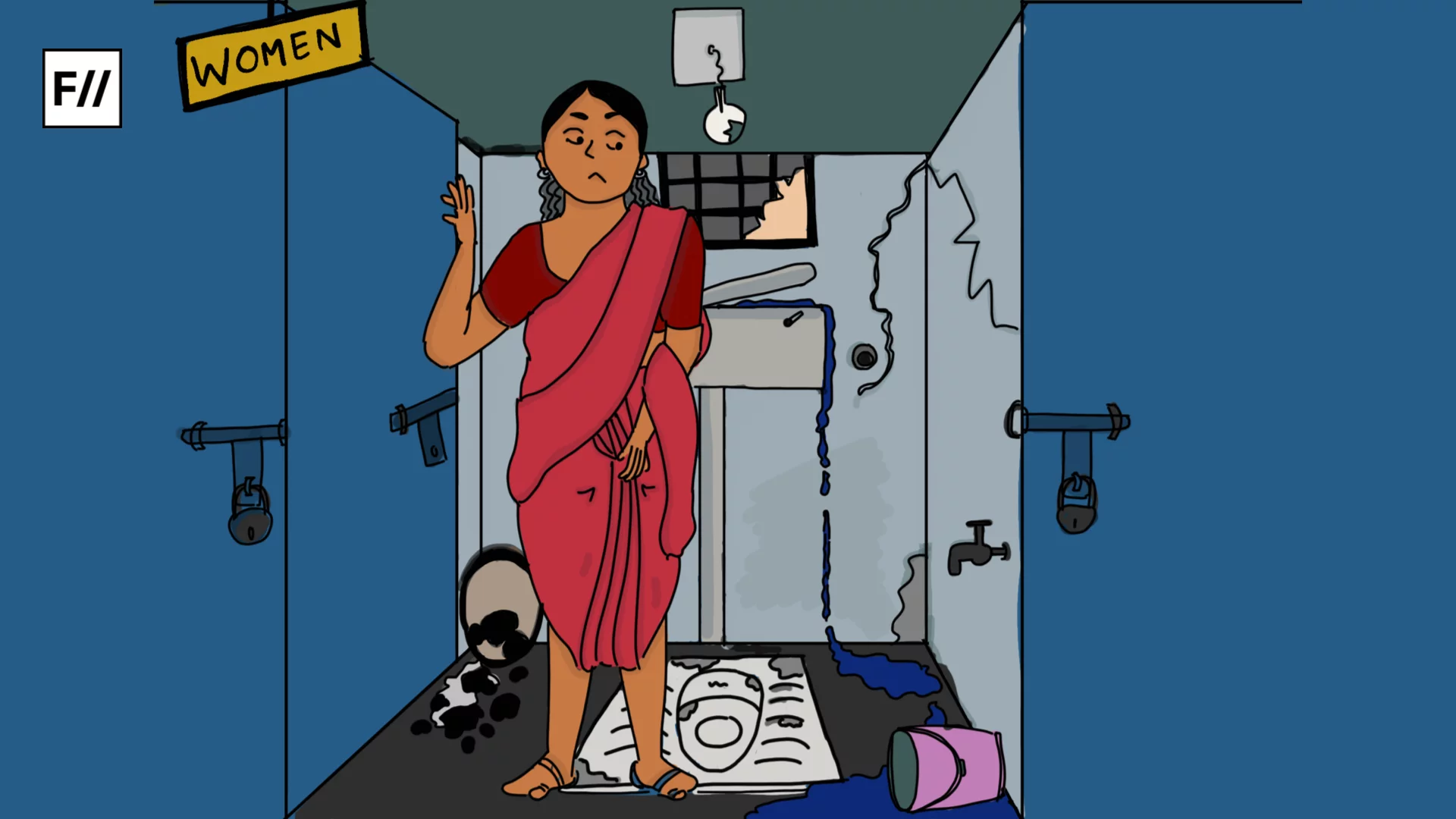What started as a concerned curiosity to help our electrician bhaiya for the present Covid-19 pandemic, has now become an initiative reaching 240 families covering 1000 to 1100 people approximately. Bhaiya from Saharsa, Bihar tells us how the lack of owning a ration card hinders him and others like him from receiving dry grocery items. We contacted a few NGOs, of which Centre For Advocacy and Research (CFAR), Kalkaji came forward and made generous contributions of essential items which includes rice, dal, oil, soap, sanitary napkins, tea, sugar, salt, and spices.
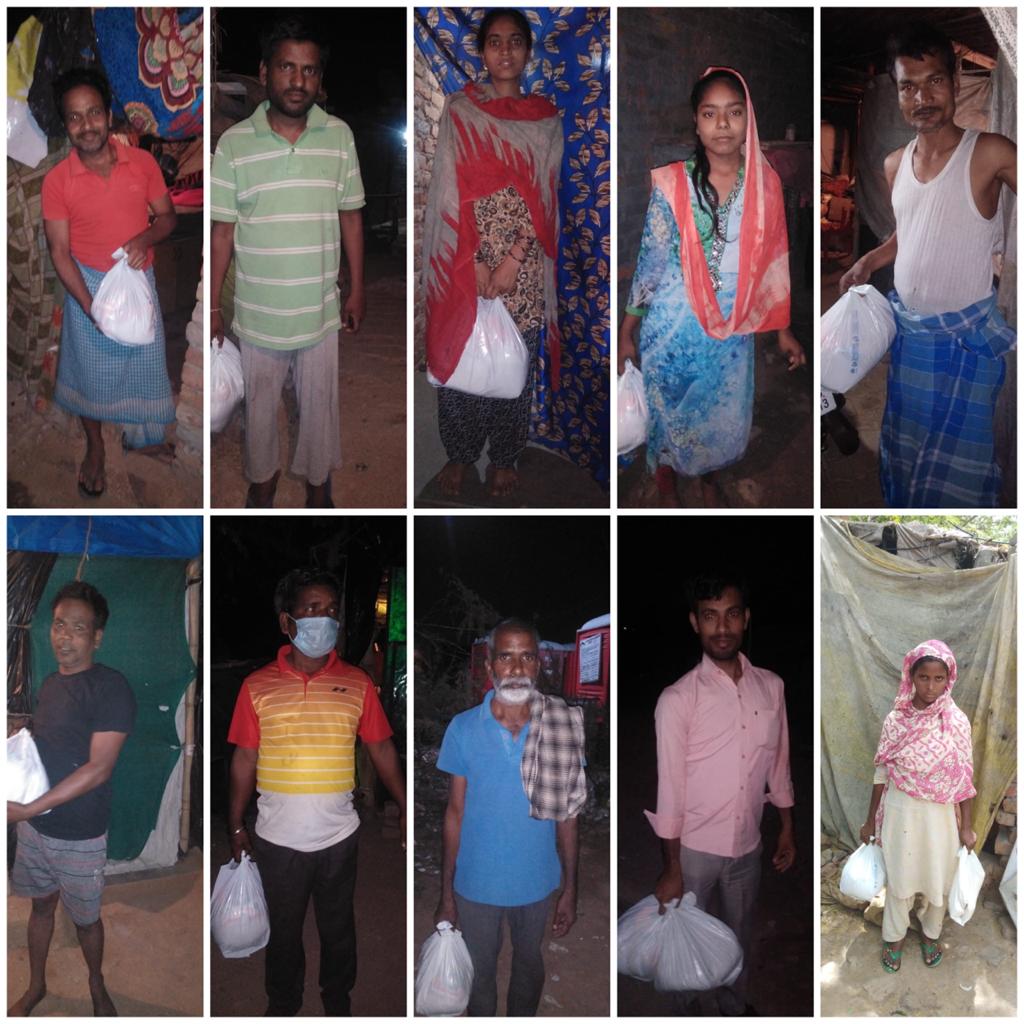
How To Get Started?
We are a group of four research scholars from JNU and part of the organization DAPSA (Dalits, Adivasis, professors, scholars association) quarantining together at Vasant Kunj Enclave. Interactions that happen when we step out to get vegetables and groceries were laden with stories of hardships and suffering. Once we got positive reciprocation in what started as a few hopeful calls, it was decided in a matter of minutes that we would be involved in this initiative together.
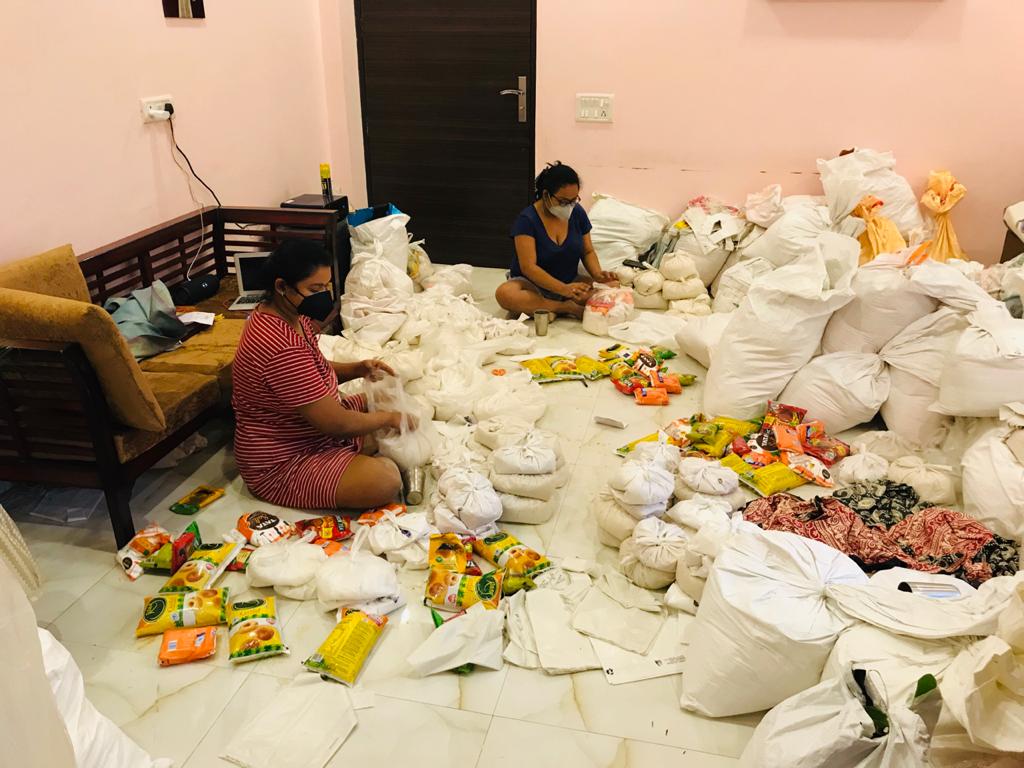
Post making a few calls and we had our building caretaker, carpenter and two of his friends were ready to help us with getting names and doing the listing of the residents of Shankar Camp against their Aadhar number (for purposes of transparency and equal distribution). Shankar Camp is the area behind Vasant Kunj and is inhabited by approximately 5000 people with a predominant migrant population from Bihar, Sundarbans and Uttar Pradesh.
Also read: How Is Domestic Violence Linked To The COVID-19 Lockdown?
We decided to wrap sanitary napkins in paper bag so as to solve the issue. But the problem persisted, now with two specific complaints that women can’t accept sanitary pads delivered by men and that food (dry groceries) can’t be touching sanitary pads.
The above-mentioned four men also became the people responsible for distribution of the ration (whilst maintaining all rules of distancing and hygiene) to the respective families listed on our first roll. We did a two-hour long crowd funding drive on our social media to cover for our logistics (payment for our distributors, petrol for delivery, gloves, masks and extra oil and sanitary pads).
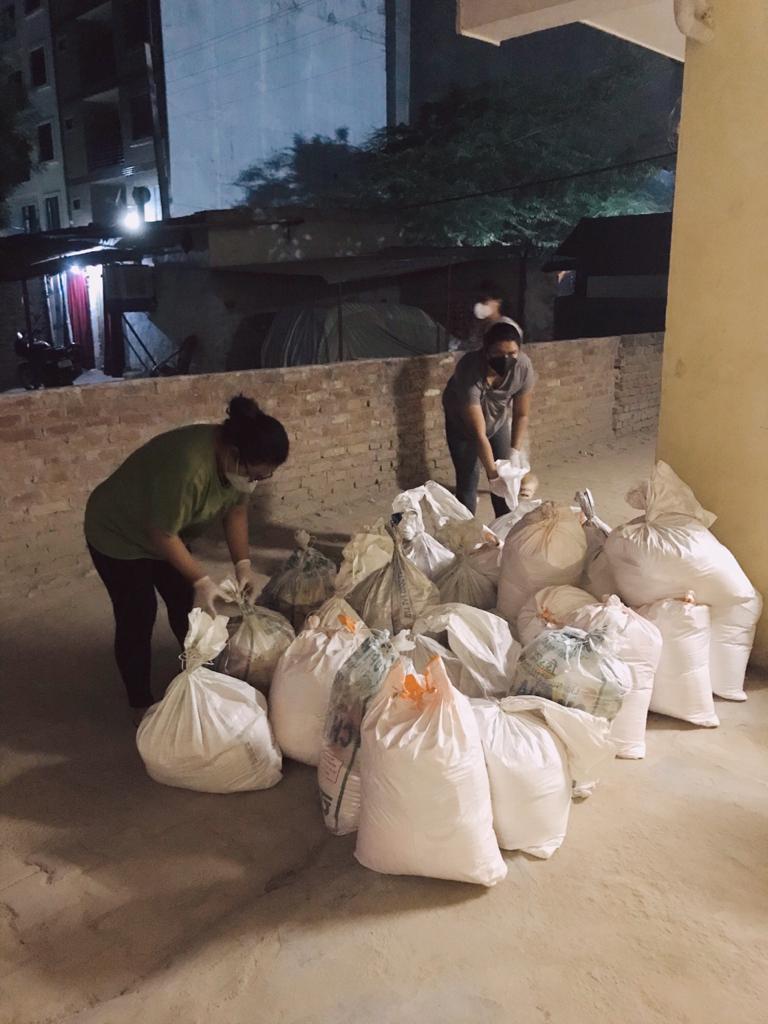
The Challenges
Our experiences on ground were totally different from what we had perceived. We knew we would be reckoned with logistical and monetary challenges. But, that menstrual hygiene might hinder the relief work for Covid-19 or that we were threatening power relations for the men in the area was a far-fetched thought. Alas, we were wrong. It is important here to also mention the problems we faced in particular to gender norms.
men in the area are quite displeased with the fact that four women are taking decisions regarding an initiative as significant as food drive, the consequence of which was taunts directed at the distributors.
Firstly, since social distancing was our prime concern, we decided that us quarantining together would take care of packaging. But every other evening our distributors would bring forth sanitary napkins. We, therefore, decided to wrap them in paper bag so as to solve the issue. But the problem persisted, now with two specific complaints that women can’t accept sanitary pads delivered by men and that food (dry groceries) can’t be touching sanitary pads.
In a non Covid-19 world, we the women, contingent of the initiative, would have either stepped up for the distribution or included women from the area for distribution. Both the options were risky for us and hence unfortunately, we had to stop providing sanitary pads in our packages. We have saved the sanitary napkins to be included in the next list aimed at widows in the area.
Secondly, men in the area are quite displeased with the fact that four women are taking decisions regarding an initiative as significant as food drive, the consequence of which was taunts directed at the distributors.
Also read: COVID-19 Lockdown: Domestic Workers And A Class-Caste Divide
It is disappointing that even in the year 2020 and even during such trying times, patriarchy pervades and persists. This work has been exhausting due to both the unprecedented amount of labour involved and the compulsive mental re-checks on hygiene. However, it has also been fulfilling and we will continue fighting Covid-19 and patriarchy one day at a time.
Team Shankar Camp
Aditi Narayani: She is pursuing her Phd from Jawaharlal Nehru University and is actively involved with Dalit Politics.
Mayalo Boro: She is a Research scholar at School of International Studies, Jawaharlal Nehru University. She is vocal about Tribal Rights and is working on environmental issues.
Poonam Boro: She is doing her Masters from Informal Sector and Labour Studies and has been actively involved with Migrant Labourers issues
Anuradha Sinha: She is a Research Scholar at School of International Studies, Jawaharlal Nehru University. She is working on migration and EU policies.
All pictures have been provided by the author.
